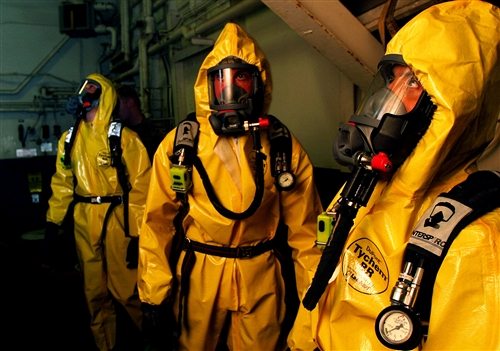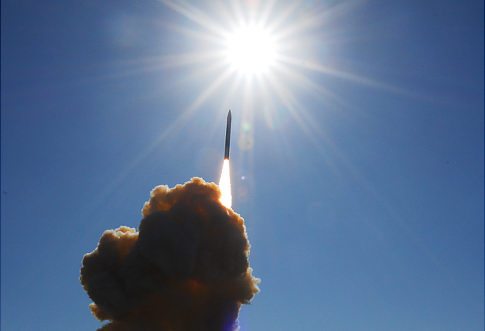The potential for terrorist use of chemical agents is a noted concern highlighted by the Tokyo sarin gas attacks of 1995. The events of September 11, 2001, increased congressional attention towards reducing the vulnerability of the United States to such unconventional attacks. The possibility that terrorist groups might obtain insecure chemical weapons led to increased scrutiny of declared Libyan chemical weapon stockpiles following the fall of the Qadhafi regime.
Experts have expressed similar concerns regarding the security and use of Syrian chemical weapons, reportedly including stocks of nerve (sarin, VX) and blister (mustard gas) agents. For analysis of chemical weapons in Syria, see CRS Report R42848, Syria’s Chemical Weapons: Issues for Congress, coordinated by Mary Beth D. Nikitin.
Military planners generally organize chemical agents, such as chemical weapons and toxic industrial chemicals, into four groups: nerve agents (such as sarin and VX), blister agents (such as mustard gas), choking agents (such as chlorine and phosgene), and blood agents (such as hydrogen cyanide). While the relative military threat posed by the various chemical types has varied over time, terrorist use of these chemicals against civilian targets is viewed as a low probability, high consequence event.
Chemical weapons and toxic industrial chemicals cause a variety of symptoms in their victims.
These symptoms depend on the chemical agent used, and a victim of chemical exposure may exhibit a combination of symptoms. Some chemical agents cause death by interfering with the nervous system. Some chemical agents inhibit breathing and lead to asphyxiation. Other chemical agents have caustic effects on contact. As a result, effective chemical attack treatment depends on identifying at least the type of chemical agent used. Additionally, chemical agents trapped on the body or clothes of victims may place first responders and medical professionals at risk.
Civilian protection from and detection of chemical agents is an area of federal concern. Whether terrorist groups are capable of using chemical agents as weapons of mass destruction is unclear. Some experts have asserted that the volumes of chemicals required to cause mass casualties makes that scenario unlikely. They claim that chemical terrorism is more likely to be small in scale. Other experts have suggested that there has been an increase in terrorist interest regarding chemical agents, and that this interest could lead to their use in terrorist attacks. Some experts assert that insecure stockpiles of military-grade chemical agents would lower the barrier to terrorist acquisition of chemical agents and thus increase the possibility that terrorists might use them.
The change of regimes in Libya and Egypt and recent events in Syria have increased concern that such military-grade chemical agents might transition into terrorist hands and then be used to attack U.S. sites either domestically or abroad.
[Download not found]











